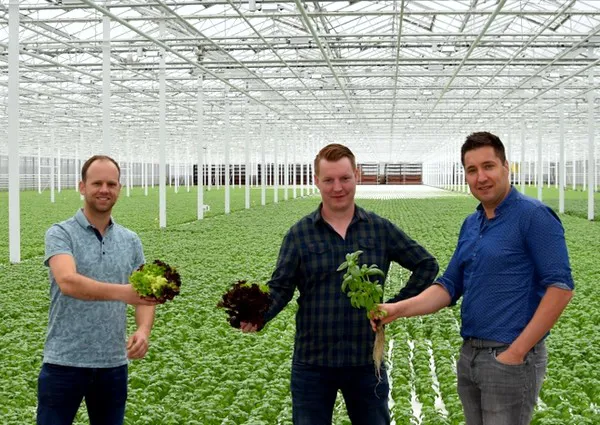Many growers have to deal with increasing energy prices, and we have already seen some major producers halting winter production or outright close business. "In some situations, using artificial lights can be just too expensive," says Tim van Hissenhoven, managing partner of Cultivators. "It all depends on the energy contract a grower has, but at some point it is almost inevitable to start calculating. If a grower finds out it's not possible to continue like that any longer, then the only choice is to stop."
Coping with the crisis
At the same time, Tim points out that there are ways to cope with the increased energy prices. "For instance, you can think of putting additional energy screens," he says. On top of that, the right varieties can help growers get through the winter without halting production. "With lettuce, there are some varieties that are developed specifically for winter production, allowing you to grow in a colder environment, without artificial lights."

Thus, it doesn't come as a surprise, then, that many greenhouse vegetable growers decided to not go ahead with cultivation this winter. "That's also partially because most production facilities are so specialized that it is very hard to do a different crop than the one it was designed for. So, rather than changing the whole greenhouse, it's better to delay the planting. A lot of growers will resume production around February or March when you have better temperatures, light, and weather."
Not only growers
At the same time, growers are not the only ones affected by the energy crisis and inflation. "Many growers have difficult times, but consumers do too. A lot of people will have less budget to spend, all the while price and quality will keep becoming more and more important," he remarks. That is why Tim and Cultivators are currently putting most of their efforts into helping growers get through this cold period. "First of all, we assist growers in making a good strategy for winter," he says. "We need to nail the right climate strategies and the right varieties to grow. Based on the energy and sales price that is available. We have also seen that extra investment in additional screens and dehumidification technologies can help a lot drive operational cost down."
It's crucial also for growers to rely on consultants and suppliers that can support them regardless of supply chain disruptions. "If a grower has to make some quick adjustments to keep planting through winter, then it's essential that they don't experience any delay," Tim says. "We have been active in this industry for many years and have a large network that allows us to deliver everything a grower needs to implement in a timely fashion. Currently, we all are in a sort of wait-and-see situation, but it's also important to try to push through the hurdles, and growers need full support on all sides for that."
 Cultivators
Cultivators
[email protected]
cultivators.nl
